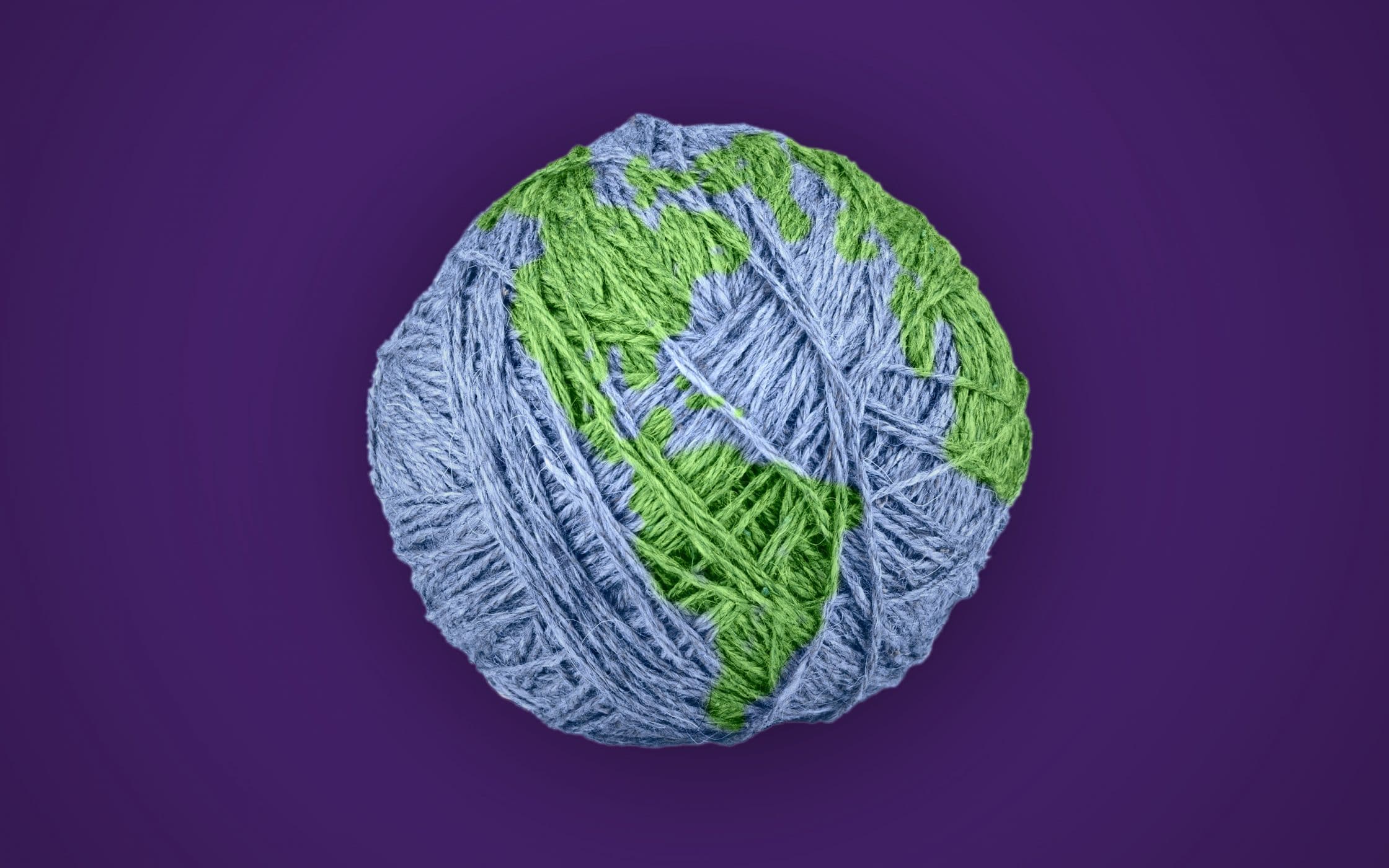Exploring the Surge of Cape Town Sustainable Fashion Brands
Exploring the Surge of Cape Town Sustainable Fashion Brands
Blog Article
Keep Ahead of the Contour by Exploring Cutting-edge Fashion Fads
In a sector as vibrant as style, staying ahead involves even more than simply adhering to present patterns-- it demands an exploration of innovation. The merging of modern technology and fashion advertises a new era of consumer involvement.

Accepting Smart Textiles
Recently, the fashion business has experienced a transformative change with the combination of clever textiles, an advanced technology that blends modern technology with material. This advancement represents not only a combination of aesthetic appeals and capability yet also a considerable jump in the direction of sustainability and customization in fashion. Smart textiles, likewise recognized as e-textiles, embed sophisticated electronic devices such as sensing units and conductive strings within the textile, allowing garments to engage with the user or the environment.
These textiles are developed to check physiological parameters, such as heart rate or body temperature, giving real-time health analytics. Beyond health applications, wise fabrics are additionally being made use of for flexible clothes, which can alter shade or pattern in response to environmental stimulations, hence offering a dynamic fashion experience.
Moreover, the advancement of energy-harvesting textiles that generate power from activity or sunshine is paving the way for self-dependent wearable modern technology. This technology is attracting ecologically conscious customers and designers intending to minimize the environmental footprint of style. As r & d in this area advancement, smart fabrics are expected to become significantly common, improving the landscape of contemporary fashion with their multifunctional abilities.
The Rise of 3D Printing
Revolutionizing the production landscape, 3D printing has become a game-changer in the fashion business. This advanced modern technology has made it possible for designers to press the boundaries of creative thinking, creating detailed and personalized garments that were formerly unthinkable. By leveraging digital style and additive manufacturing, 3D printing assists in the creation of complicated geometries and patterns, allowing developers to experiment with new appearances and structures.
A remarkable advantage of 3D printing in vogue is its capability to generate on-demand, lessening waste and reducing stock demands. This effectiveness not only maximizes production processes yet likewise enables rapid prototyping, making it possible for developers to bring their visions to life in a much shorter timeframe. In addition, 3D printing supports personalization to a level unrivaled by standard techniques, offering one-of-a-kind styles and customized fits tailored to specific customer choices.
The increase of 3D printing has additionally equalized fashion, making it available to arising designers who can currently fabricate high-grade items without significant economic investment in typical manufacturing framework. As innovation remains to breakthrough, the fashion business is positioned to harness the complete potential of 3D printing, discovering brand-new materials and methods that will most certainly redefine exactly how fashion is conceived and created.
Lasting Style Advancements
As the style industry grapples with journalism demand for environmental obligation, sustainable style advancements have arised at the leading edge of transformative modification. The growing awareness of eco-friendly effect has actually sustained a shift towards even more eco-conscious practices and products. Designers and brand names are currently prioritizing sustainability, including techniques that reduce waste and reduce carbon impacts.
One significant growth is the Read Full Article increase of circular style, which highlights recycling and upcycling to expand the lifecycle of garments. This technique not just minimizes waste but additionally encourages customers to adopt an extra mindful technique to clothes intake. Furthermore, using sustainable products, such as natural cotton, hemp, and recycled polyester, has gained grip. These materials call for much less water and energy throughout production, dramatically minimizing ecological impact.
Another innovation hinges on the adoption of cutting-edge dyeing strategies that utilize waterless processes or natural dyes, thus minimizing the substantial quantities of water and chemicals typically used in textile dyeing. Additionally, improvements in biotechnology have actually brought about the production of lab-grown natural leather and textiles, supplying environmentally friendly and cruelty-free alternatives to conventional materials. Via these introducing initiatives, the garment industry is making significant strides towards a more lasting future.

Tech-Integrated Apparel
Tech-integrated clothing stands for an innovative blend of fashion and innovation, improving how people interact with their garments. This innovative domain is marked by the addition of clever fabrics and embedded digital elements, improving both capability and visual appeal. From physical fitness trackers installed in sports apparel to warmed coats controlled through mobile phone applications, tech-integrated garments offers consumers unmatched comfort and flexibility.
Introducing brands are driving this find more pattern, concentrating on developing garments that respond to environmental stimulations or user commands. As an example, some garments can change color or pattern in feedback to temperature shifts, while others include biometric sensors to check health metrics like heart price or stress levels. The seamless combination of modern technology into textiles additionally reaches ecological sustainability, with initiatives to create self-cleaning materials or garments that adjust to climate condition, therefore minimizing the need for multiple layers.
Furthermore, the introduction of wearable modern technology is not simply limited to garments yet includes accessories like watches and eyewear, further expanding the range of learn the facts here now tech-integrated style. As the market remains to introduce, the possibility for modification and customization in clothing expands, using consumers unique, tech-enhanced fashion experiences that satisfy their private needs and choices.
Future of Virtual Style
In the last few years, the future of online fashion has emerged as a transformative force within the sector, leveraging developments in digital technology to redefine how fashion is developed, experienced, and eaten. By incorporating enhanced reality (AR), virtual fact (VIRTUAL REALITY), and 3D style tools, designers can now craft interactive and immersive experiences that go beyond standard fashion boundaries. Virtual style enables the production of garments that exist only in electronic atmospheres, providing unlimited possibilities for innovation without the constraints of physical manufacturing.
This digital change not just provides opportunities for creative expression yet additionally addresses sustainability issues inherent in traditional style techniques. Cape Town Sustainable Fashion. By getting rid of the need for physical sources, virtual style decreases waste and decreases carbon footprints. Furthermore, the increase of virtual fashion straightens with the boosting customer demand for one-of-a-kind and tailored experiences, as virtual garments can be tailored and tailored to private choices effortlessly

Final Thought
The apparel industry's future hinge on the assimilation of cutting-edge innovations and lasting methods - Cape Town Sustainable Fashion. Smart fabrics and tech-integrated clothing are boosting functionality, while 3D printing offers opportunities for customization and waste reduction. Lasting fashion, with circular approaches and green materials, shows a commitment to ecological stewardship. Furthermore, online style is poised to redefine consumer interactions. Adjusting to these trends is crucial for brands looking for to remain relevant and competitive in this quickly advancing landscape.
In recent years, the fashion market has actually observed a transformative shift with the combination of wise fabrics, an innovative technology that blends innovation with material.As the style sector grapples with the pushing need for environmental obligation, lasting style advancements have actually arised at the center of transformative change.In current years, the future of online style has arised as a transformative force within the market, leveraging advancements in electronic innovation to redefine just how fashion is created, experienced, and taken in. The surge of digital style lines up with the enhancing consumer demand for individualized and special experiences, as online garments can be customized and tailored to specific choices with simplicity.
The style industry's future lies in the integration of innovative modern technologies and lasting methods.
Report this page